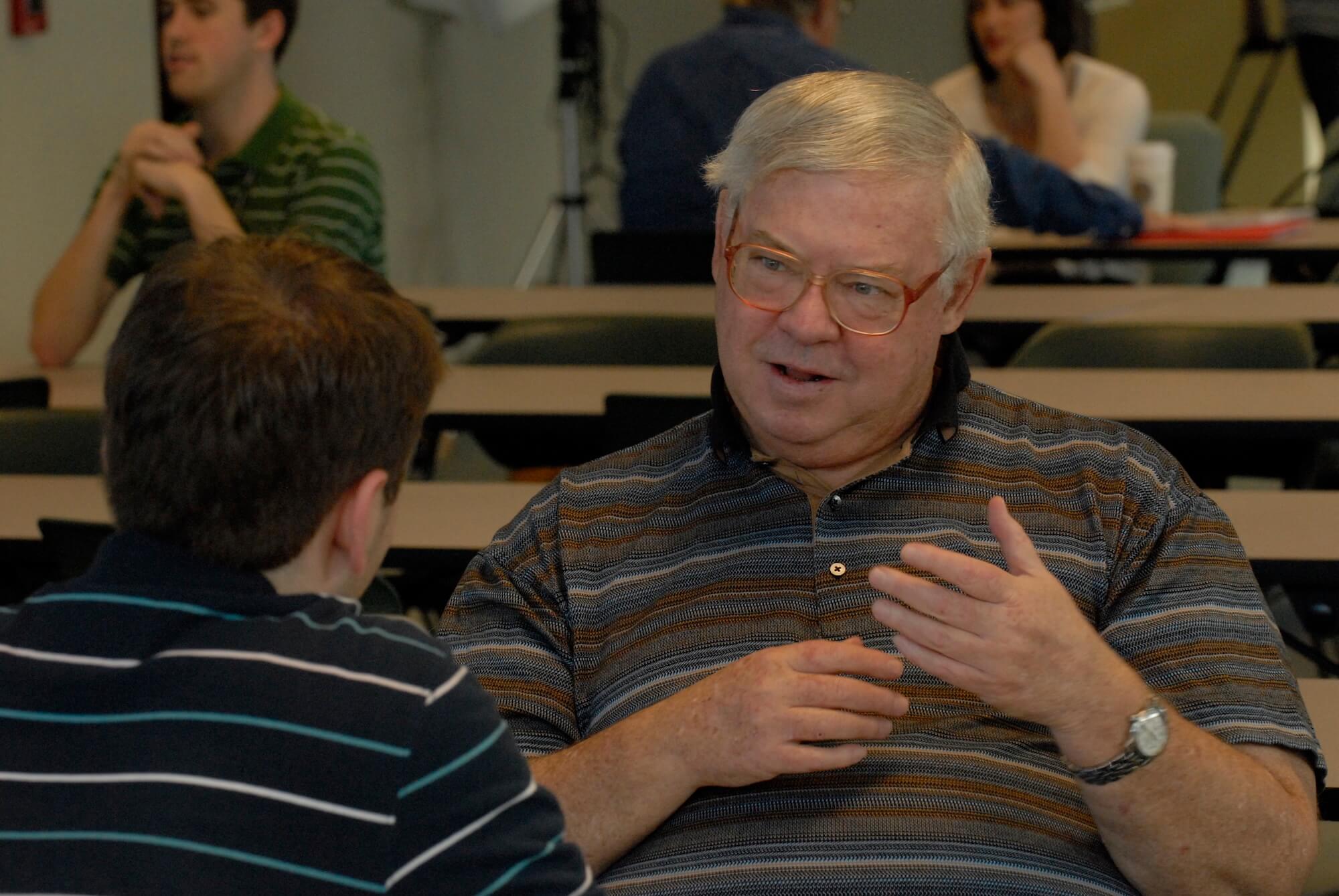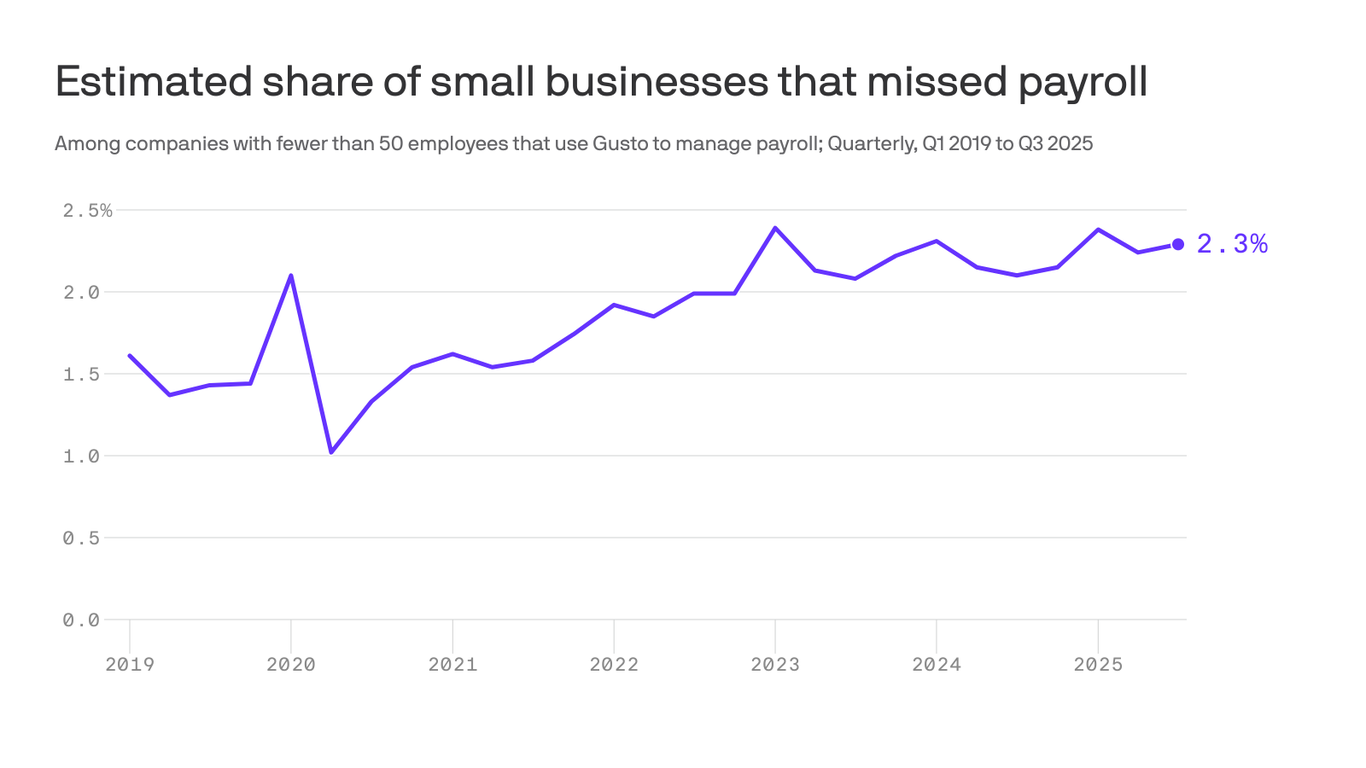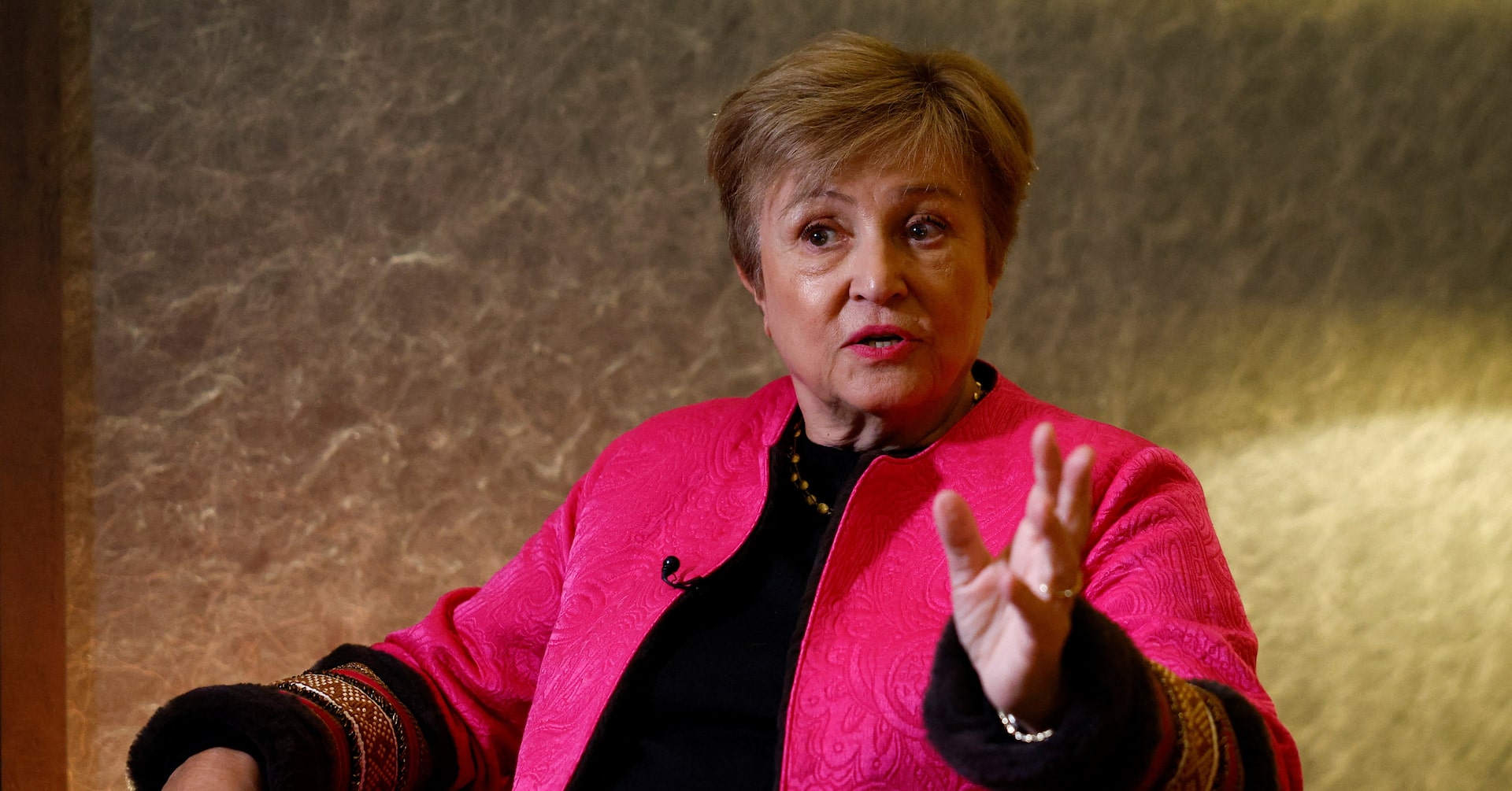The business reporter began his story with a simple question.
“Who, or what, is Charter Media Co., the firm that agreed yesterday to buy the Bulletin?”
Then, Rick Edmonds answered it, cutting through spin, jargon and numbers with vivid detail.
“The company is so new that the signatures were drying yesterday morning on legal papers defining its financial structure, even as the deal to buy the Bulletin, which will be its first newspaper holding, was announced.”
It’s an approach journalists and media watchers are used to from the Poynter Institute’s longtime media business analyst. That story, though, ran in The Philadelphia Inquirer in April 1980.
Edmonds, who died Sunday at 78 after internal injuries following a car accident, made a career out of making sense of things.
In a time when the media business convulsed, contracted and changed, Edmonds’ expertise was constant.
And throughout his career, he did the thing journalists aspire to do — show, not tell.
Poynter’s homepage in 2009 featured Rick Edmonds’ coverage of the media business. (Poynter file)
When she saw the staff email on Sunday about his death, Angela Fu realized there was so much about Edmonds’ career that she’d never known, including that he was part of a 1982 Pulitzer finalist team at the Inquirer for a series on live-birth abortions.
“That never came up,” said Fu. “He never mentioned it. It makes perfect sense, of course he would have done that. But I didn’t know that.”
Many of his colleagues, current and former, didn’t either. Edmonds — a Harvard grad, once the editor and publisher of Florida Trend Magazine, previously an editor at the St. Petersburg Times, the Inquirer and a reporter at the Winston-Salem Journal — didn’t talk with colleagues or peers about what he’d done, but what they were doing.
“He was the foremost media business industry expert,” Fu said.
But when she came to Poynter and moved into covering the beat right out of college, Edmonds sought out her takes on the stories they both covered. What approach did she think was best? What did she make of that earnings report?
“Even though he was this expert and I would go to him if I ever needed a source or ever had a question, he still treated me like an equal,” Fu said.
Ben Mullin, who covers the media for The New York Times, got the same treatment when he first came to Poynter out of college and started navigating the business of the business.
“He was the first journalist to explain very basic things like the difference between revenue and profit to me,” Mullin said. “He taught me how to read a balance sheet, which is a skill that I use on a daily basis.”
Edmonds helped his young colleague, who he often referred to as “Scoop,” understand corporate maneuvers, including spinoffs and mergers and the strategies behind them.
“He basically unlocked a different kind of thinking for me from a very young age,” Mullin said.
Edmonds did that for any reporters who asked, in fact, even if they were technically the competition. Elahe Izadi started on the media beat at The Washington Post in 2020, and Edmonds was an early call as she learned the industry.
He could navigate the landscape of the print business, untangle hedge fund misdeeds, translate earnings reports, sort through jargon, and was quick to get on the phone and help make sense of things.
“It felt like he was the classic inquisitive journalist, interested and just curious,” she said. “He never wore that expertise on his sleeve in such a way that he had to prove to you that he knew a lot. But his work sort of spoke for itself.”
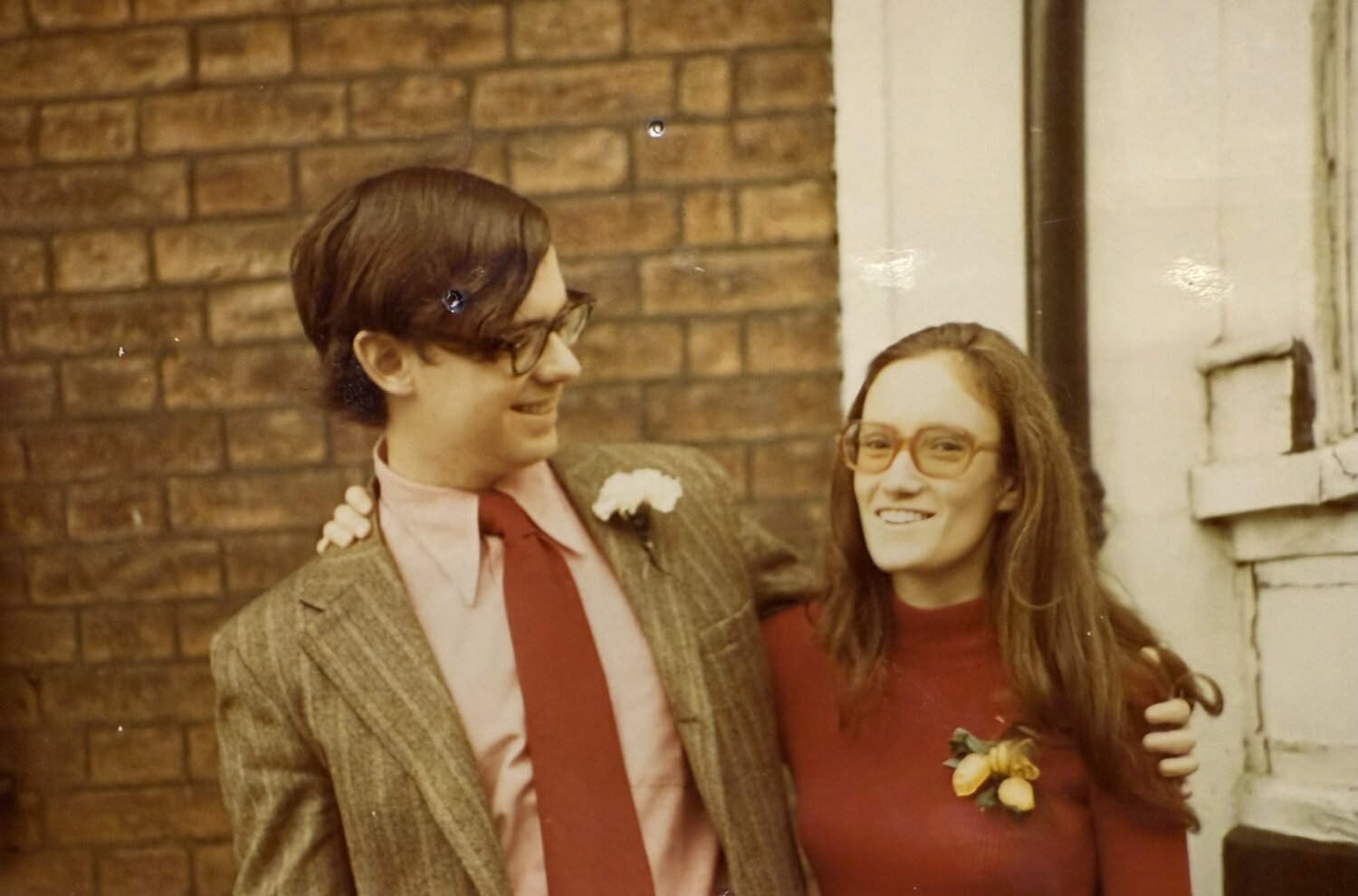
Rick and Marianne Edmonds were married in England. “He loved my mom more than life itself,” said their daughter, Jenny Edmonds. (Courtesy: Marianne Edmonds)
“You’re gonna meet this guy, Rick Edmonds, at my wedding,” Marianne Fiermark’s college girlfriend said in the winter of 1969.
That guy was a young journalist from Minneapolis, an assistant for James Reston at The New York Times, and the nephew of Hedley Donovan, the well-known editor of Time Inc.
Impressive, but very human, Edmonds went to the wrong airport and had to wait a few hours for a plane to his high school debate partner’s wedding. So he spent most of those hours at the bar.
When he arrived in Minneapolis, Edmonds was perhaps a bit looser than usual. He spent the night watching wedding guests dancing the kazatsky and the hora, and Marianne was one of them. They talked about a book she’d read. She found him charming, kind and — most appealingly — intelligent.
After the wedding, Marianne bought the book they’d talked about and sent it to Edmonds.
Eventually, the young couple moved together to Winston-Salem, North Carolina, for Edmonds’ first reporting job. In 1972, while he was on a fellowship in England, his girlfriend managed an overseas call after an emergency surgery. Thanks to the drugs, this time she was perhaps a bit looser than usual.
“I think we should get married,” she told Edmonds. “Otherwise, I’m going to go do something else.”
“Well, come here and we’ll get married,” he sensibly replied.
She flew to England, and in Colchester, they were scolded at the registrar’s office.
They were told: “In England, marriage is a very serious affair.”
And for nearly 53 years, it was.
The Edmonds adopted two daughters, Leslie and Jenny. He drove each of his girls, who are about five years apart, to school, stopping for Burger King each morning with Leslie and singing along to old country music with Jenny. Leslie joined her dad on the golf course and hunted for stray balls, knowing he’d pay her for the good ones. Every summer, the family went to North Carolina, and Jenny and her dad often took the road trip together, singing along to Tim McGraw, and Kenny Chesney.
When they were adults, he sat up nights with Jenny after she had her son, Junior. And when Leslie got married, her dad, who struggled for years with health issues that required a walker and later a wheelchair, went to physical therapy so he could walk her down the aisle and share their first dance.
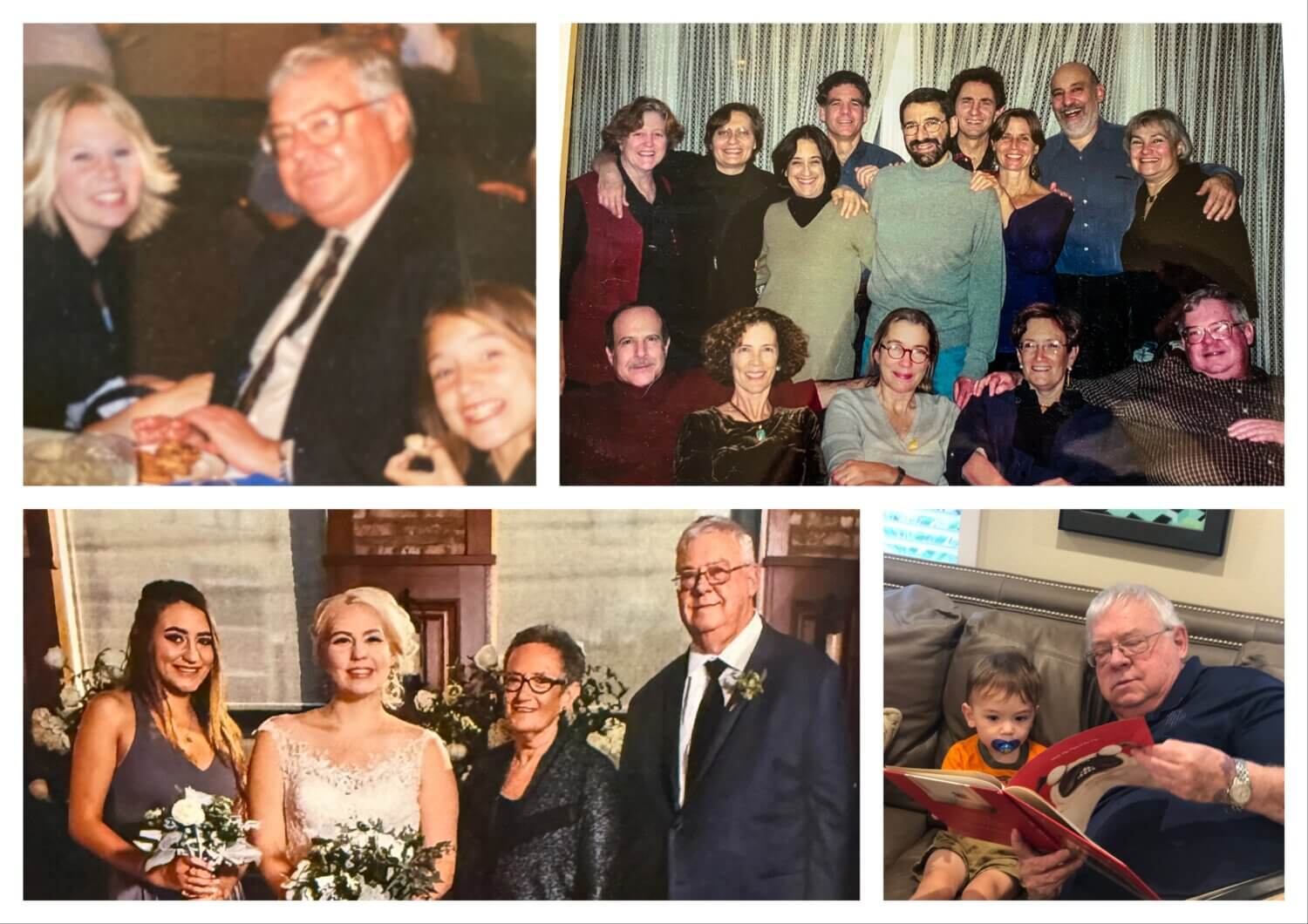
Pictured clockwise from left to right, Rick Edmonds and his daughters, Leslie and Jenny; Top right: Rick and Marianne Edmonds met every year with a group of reporters and their spouses who launched their careers together; Bottom left: The Edmonds family at daughter Leslie’s wedding; Bottom right: Edmonds and his grandson, Christopher. (Courtesy: Marianne Edmonds)
Edmonds’ career took him from reporting to editing to publishing, and his family from North Carolina to Pennsylvania to Florida. He spent several years in civic work. And then, in late 1990s, he returned to journalism to cover the media business for Poynter.
“He went from being a high-level manager to going back to being a practitioner,” Marianne Edmonds said, “and I think that was OK with him because he really loved the work.”
Paul Taylor, a friend since their early days as young reporters in North Carolina, watched his friend become the “leading chronicler of the very unhappy story of the near demise of traditional legacy journalism.”
Edmonds was the perfect person for the job.
He was passionate about understanding how things work and why people behave the way they do, and even-handed in how he approached things, said Taylor, whose career later took him to The Washington Post and to work as the vice president of Pew Research Center.
Even as a young reporter, Edmonds saw nuance where his peers saw the world as black and white, said friend and former colleague Bill Marimow, who went on to become the editor-in-chief of The Philadelphia Inquirer, The Baltimore Sun and the vice president of news at NPR.
“Rick was a very good listener,” Marimow said. “He was able to plumb deep relationships because he had a real interest in colleagues and the people he covered.”
Edmonds was a good journalist because he was a good analyst, said Vernon Loeb, who worked for Edmonds at the Delaware bureau of the Inquirer.
“He could recognize both the ethics of the newsroom and the ethics of the boardroom and reconcile the two or sometimes not reconcile the two,” Loeb said, whose career included working as managing editor at The Houston Chronicle and politics editor at The Atlantic. He’s now the executive editor of Inside Climate News.
Edmonds’ career began as a newspaperman, and he thrived as a journalist at a time when the newspaper world was flush with authority, money and opportunities. Along the way he became a savvy business news executive. Chronicling the transformation of that industry wasn’t a natural rung on the career ladder, but for Edmonds, it was a return to what he valued: clarity, curiosity and public service. He didn’t just report on legacy journalism’s decline. He traced its causes, challenged settling narratives about those causes and did it all in a way that reflected the best of what good journalism can do.
In his final years of work, Poynter President Neil Brown nudged Edmonds to cover silver linings along with a dark and growing line of clouds, said Edmonds’ editor, Ren LaForme.
“And I’d say Rick was both vexed by that ask and up to the challenge.”
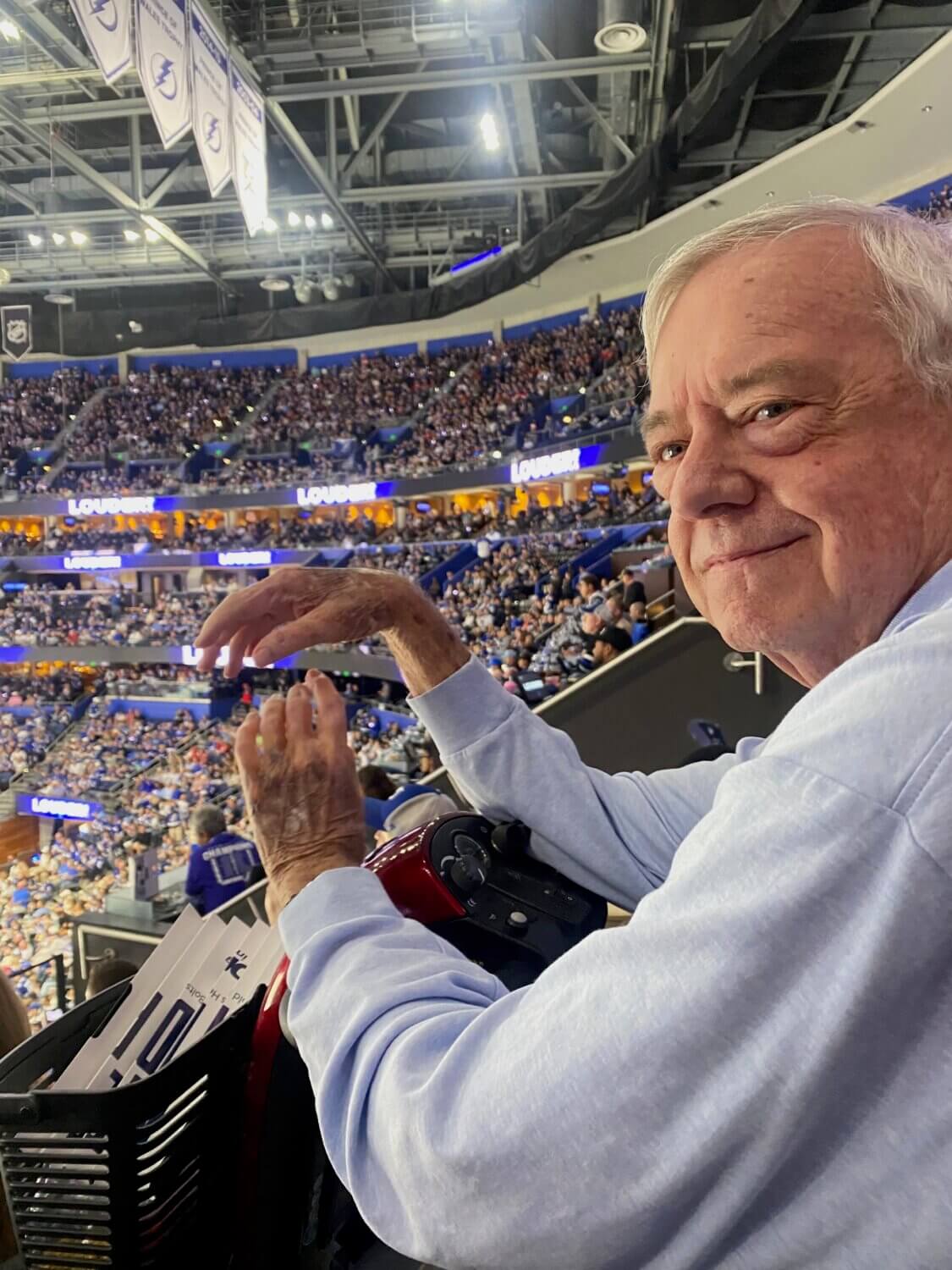
When he wasn’t working, Rick Edmonds loved sports, once collected baseball cards, read, played The New York Times’ games, and, in his younger days, was reported to be a formidable tennis player. (Courtesy: Marianne Edmonds)
Rick Edmonds’ family has requested that a fund be established in his honor to support Poynter. You can learn more here.

